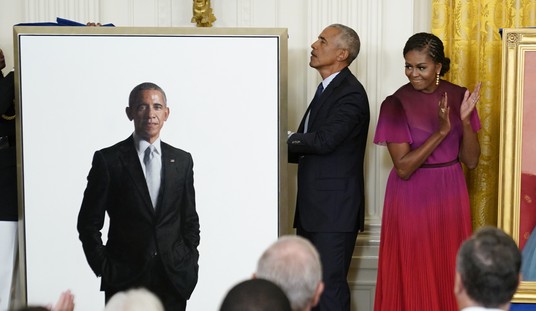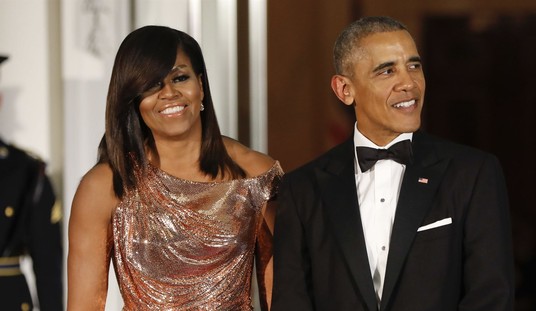If someone were to come to you with an earnest proposal to have the government temporarily censor the Internet so that people could have the shared experience of going without it (an experience otherwise known as the entirety of human history before about 1995), what would you say? The vast majority of people would probably say some variation of this: “What a stupid idea. Please go away.” Unfortunately, none of this group appears to be in charge at Harrisburg University of Science and Technology in Pennsylvania, where the response was very different: “How does the week of September 13th sound?”
Indeed, according to The Chronicle of Higher Education, Harrisburg University has decided to block Facebook, Twitter, MySpace, and AOL Instant Messenger from university network connections for the duration of the week in order to give students, faculty, and staff a “shared experience” that will allow them to “see how they can use social media in a more positive and efficient way.” Apparently the inefficiency (huh?) and dearth of “positivity” on social media sites is keeping administrators at Harrisburg University up at night.
Don’t call it censorship, though! Eric D. Darr, Harrisburg’s executive vice president and provost, says it’s not: “We’re not denying students, staff, and faculty the right to connect to Facebook since the university network is only one avenue to get to these sites,” he said. “They can drive down the road to a place with wireless if they really want.”
As exercises in censorship go, this is not exactly North Korean in its ambition. But the lack of awareness of the nature of censorship that Darr’s comment displays is stunning. Darr is right that they are “only” censoring the university network. But that makes it no less a form of censorship — it simply means that the amount of effort one must go to to see the things the authorities would like you not to see is less. By this logic, China and Iran are not engaging in “censorship” by blocking politically unacceptable websites because Chinese people and Iranians can always travel to another place where those sites are not blocked, like the United States (well, the part of the United States that is not on the campus of Harrisburg University, anyway). Information has always gotten out in spite of censorship. Soviet dissidents used the “samizdat” system that involved making copies of forbidden documents by hand and passing them along , since copy machines and printing presses were strictly regulated by the KGB. More recently, Iranians used Twitter to subvert their regime’s censorship. (Ironically, this will not be an option for dissidents at Harrisburg University.)
The scale and general “evilness” of these efforts at censorship is obviously vastly different. But they all share the same goal: Harrisburg University, along with the Politburo and the Iranian ayatollahs, all believe that their censorship is justified for the betterment of those being censored. Whether it is preventing the undermining of International Socialism, curbing un-Islamic activity, or creating a student body that is more efficient and positive in its use of social media, censors always tell you they have your best interests at heart.
But do they? Harrisburg University admits that its Internet blocking is easily skirted. After all, students can go off campus to a place with wireless Internet, or use their smartphones to access these social networks. This makes the censorship attempt more of an annoyance than a real prohibition. Yet since the point of the exercise is to give students a shared experience in deprivation, it stands to reason that if Harrisburg University could figure out a way to block smartphones and outside wi-fi access, it would do so. That would make the experiment less of an annoyance and more of a real experiment. But the fact that the prohibition can be easily skirted is how the university is avoiding calling the blocking “censorship” in the first place! Indeed, with the experiment in full swing for nearly a week, the university is finding that students seem more annoyed or challenged by the restrictions than enlightened.
So what was the point, exactly? The real key to Harrisburg University’s decision can most likely be found in Vice President Darr’s statement that the purpose of the blackout is to help “students see how they can use social media in a more positive and efficient way.” A concern for “efficiency” in social media is new to me, but attempts to make what students say on social media sites more positive are nothing new. All the way back in 2005, a student at the University of Central Florida was charged with “harassment” of the “personal abuse” variety for starting a Facebook group about a student government candidate he didn’t like. The group was called (gasp!) “Victor Perez is a Jerk and a Fool.” And just last March, the University of Chicago Police censored a student’s joking Facebook post that he had a dream about assassinating University of Chicago professor John Mearsheimer (co-author of the controversial book The Israel Lobby) “for a secret Israeli organization.” Colleges are even buying software to robotically monitor the Facebook posts of their students (just athletes, for now, as far as we know).
The Internet has made amazing forms of communication possible, and it was perhaps inevitable that established authorities (like those who run our colleges and universities) would be uncomfortable with it for a variety of different reasons. However, simply because communication has become faster, more colloquial, and nearly omnipresent thanks to social networks is no reason to abandon the traditional American principles that have guaranteed us an open society in which the government does not dictate what citizens may see or say, online or off. Harrisburg University would be wise to concentrate on educating its students rather than cordon off part of the Internet in an ill-considered and ultimately doomed attempt to get students to be nicer to each other online.









Join the conversation as a VIP Member